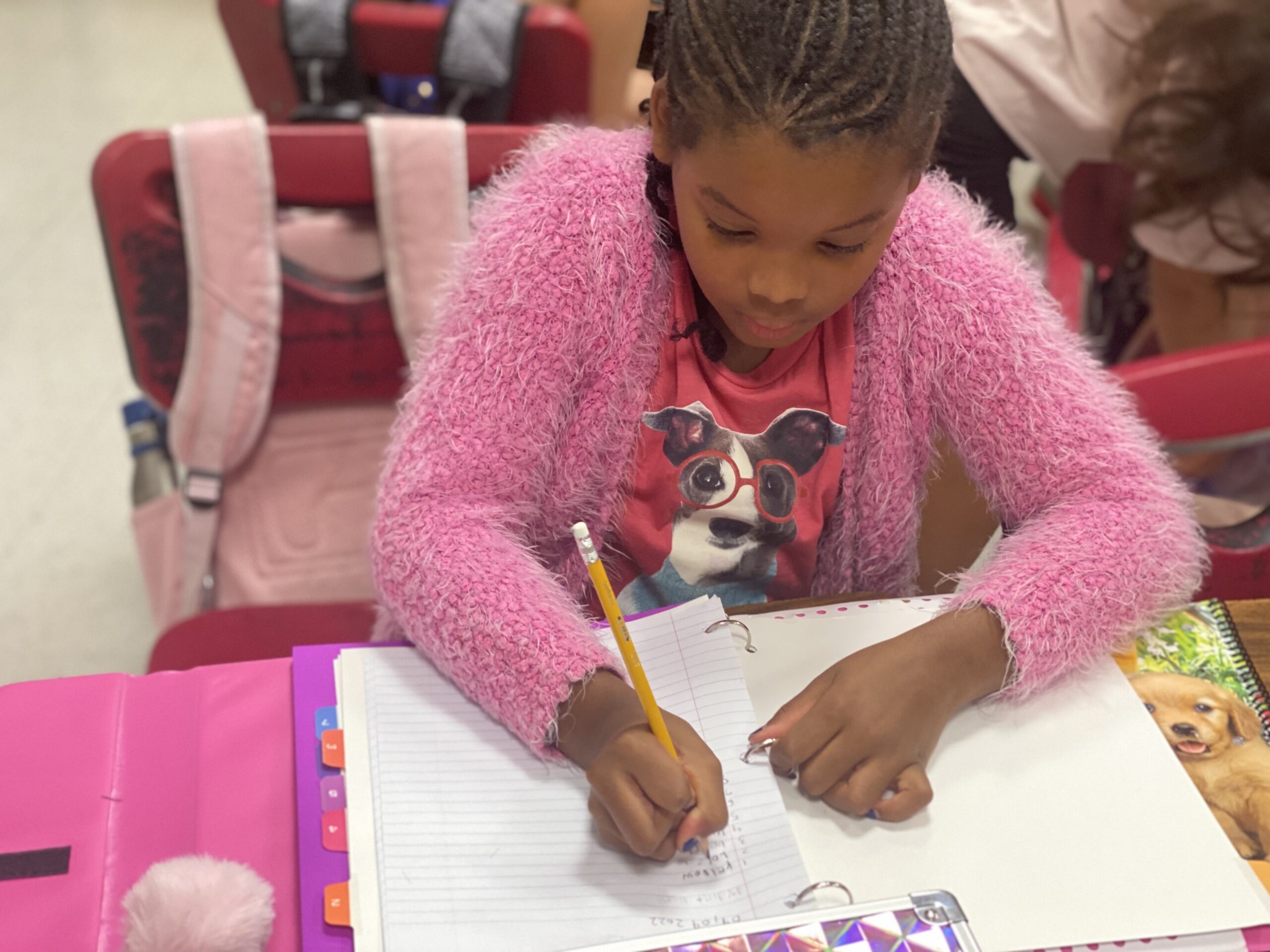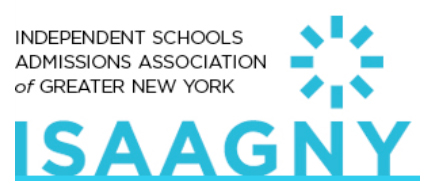Lower Division
Students in the Lower Division (Grades 1 to 6) at Garden School experience the right blend of academic focus and the additional specialists classes that are characteristic of our Lower Division Curriculum.
Students thrive in small classrooms because they receive a greater degree of individual attention. That’s the key advantage of a Garden School education: higher academic standards combined with an environment conducive to scholastic excellence.
At Garden School, we know personalized attention helps realize academic potential. We believe in recognizing students for whom they are, and in cultivating their unique identity to better awaken intellectual curiosity and inspire independent thinking. The right education makes a difference not only in grades and test scores; it makes a difference for life.
The elementary years are marked by improved reading, writing, and analytical skills, as well as a solid base of knowledge. These skills sharpen as students become more independent under the guidance of teachers who, because of smaller class sizes and a commitment to personalizing education, understand the strengths and uniqueness of each of their students.
Lower Division Highlights
- Core, academic-disciplined, and specialist teachers
- Student-faculty ratio of 6:1 with a maximum of 18 students
- Vertical curriculum design for continuity through Grade 12
- Drama/music productions
- Socialization and community building activities, and daily recess
- Full-time with Extended Day starting as early as 7:45 AM and enrichment classes until 6:00 PM
- Full-time Registered Nurse
- Hot lunch available
- Garden School buses offering door-to-door transportation
Grades 1-3
- Reading Program with core teacher and Reading Specialist
- Mathematics manipulatives program and hands-on science activities
- Writing program with writing process, grammar, handwriting, and research reports
- Social Studies lessons including cultural appreciation and geography skills
- Hands-on Science activities in laboratory with science specialist
- Language Institute –Mandarin classes twice a week taught by native-speaking specialist
- Physical education daily with classroom and specialist teachers in gymnasium
- Music and movement activities twice a week taught by specialist teacher
- Key-boarding instruction
- Art skills classes twice weekly, history and appreciation in well-appointed studio
- Weekly chess class taught by specialist teacher
- Socialization and community-building activities and daily recess; Outdoor play space with organic planting garden
- Extensive school-wide lending library
- Neighborhood and local field trips supporting classroom instruction
- Swimming pool available (weather permitting)
- SmartBoard technology, iPads and computer tablets
- Responsive Classroom Program for Social-Emotional Learning
Grades 4-6
- Daily morning and afternoon homeroom period
- Departmentalized classes with specialists in core subjects
- Ability-grouped instruction in separate locations with teacher for each group
- Extensive Writing Program with Writing Process, grammar and research reports
- Hands-on Science activities in laboratory with science specialist
- Language Institute – French classes twice per week with native speaking specialist
- SmartBoard Technology, iPads, and laptops
- Music and Movement classes with specialist
- Art skills, history and appreciation classes twice per week in well-equipped studio
- Physical education four to five times per week with specialized teachers in gymnasium
- Swimming pool available (weather permitting)
- Robotics, short-wave radio, and computer rooms
- Competitive Lego Robotics and Debate Teams
- Day and overnight field trips
- Weekly chess class taught by specialist eacher
- Responsive Classroom Program for Social-Emotional Learning
- Extensive school-wide lending library
- Keyboards, guitars and bucket drum instruction
- Performing Arts Program promoting oratory skills, self-esteem, artistic expression, and teamwork
- Topics classes for current events, research, health and wellness, community building, and study skills
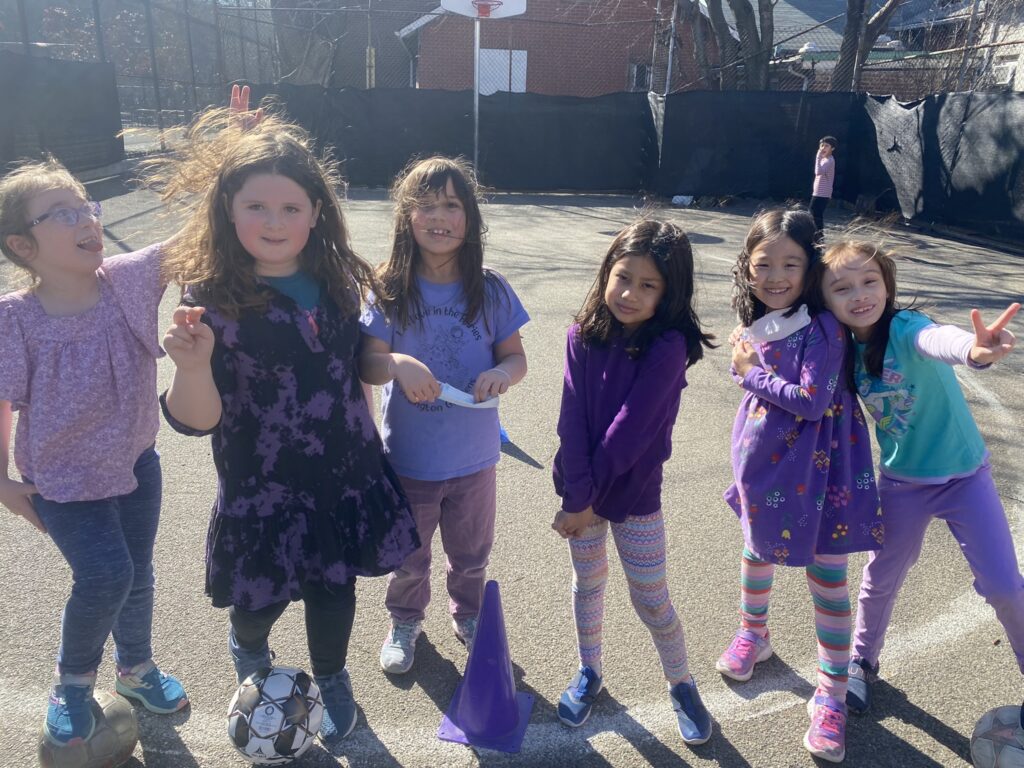
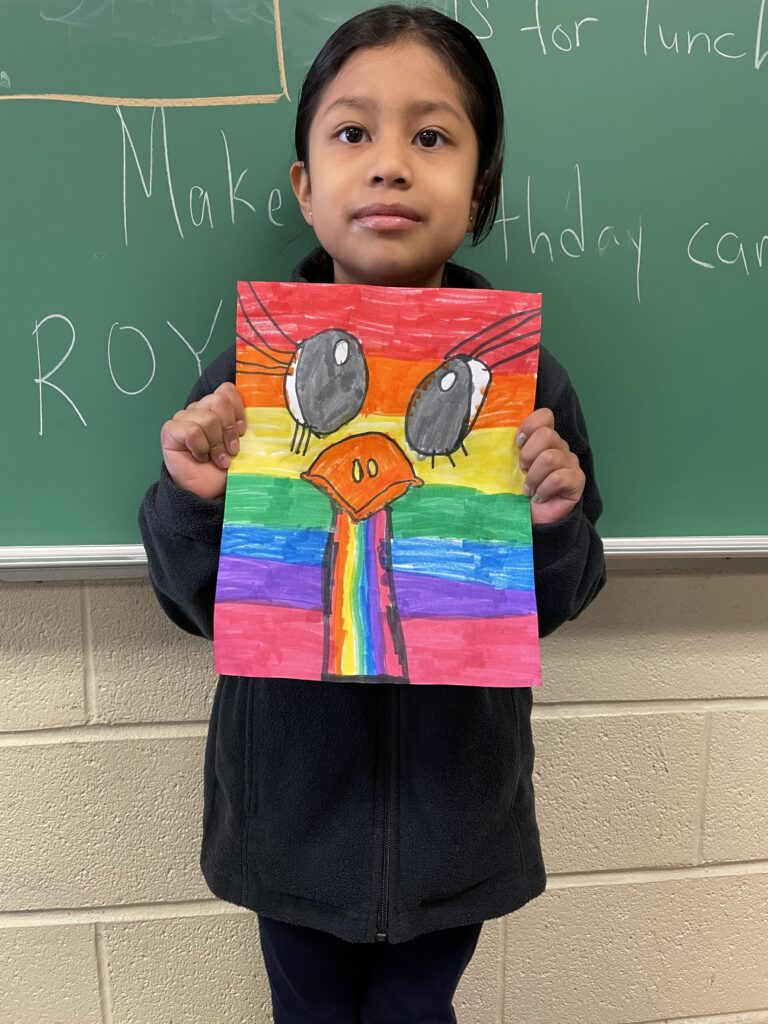

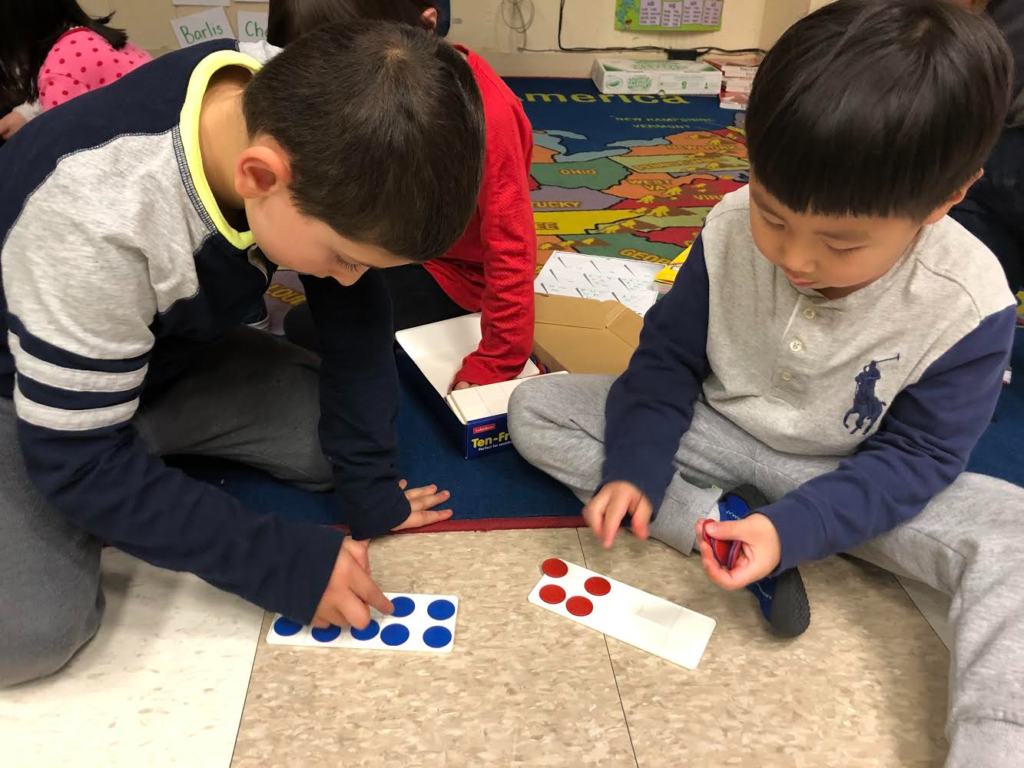

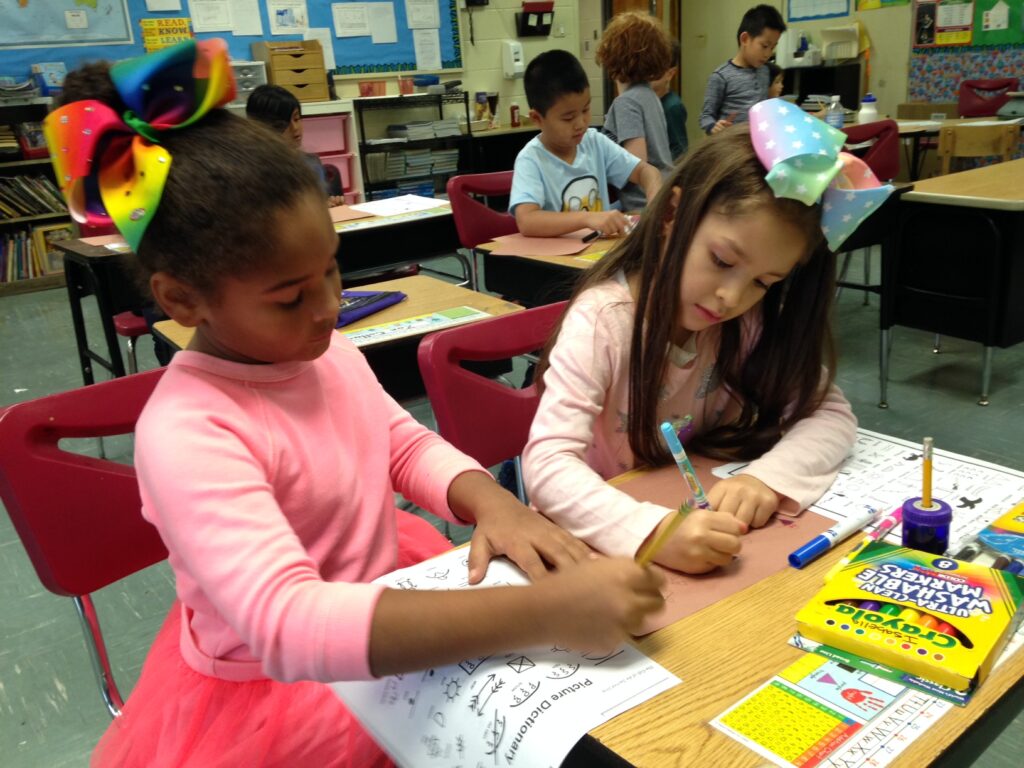

Garden School fosters an appreciation for individual talents and the cultures of all people through social studies, language study, fine art, music, and physical education. Garden School also offers after-school extra-help sessions and enrichment studies, all of which further stimulate a love of learning in our students.
The Curriculum
Art
Grades 1–3 The focus of Garden School’s art program during these years is the origin of the connection that occurs between configurations on paper and objects and the real world. Each lesson makes reference to concepts and topics that connect to subjects such as art elements and principles, skills, appreciation, history, culture, and the related topics of science, math, social studies, and literature.
Grades 4–6 In these grades, the art program encourages students to use their creativity and express it in a constructive way. The instructor presents defined goals to give direction, and yet the goal is open-ended enough so that students can employ their own approach and creative process. Familiar materials are used in new and interesting ways, famous artists are explored, and students visit museums to gain a larger perspective than what can be achieved in a classroom.
French
Grades 4–6 Introduction to basic knowledge of the French language with a focus on communication skills through dialogues and team activities. By the end of the year, students express themselves in elementary French for greetings, counting, likes and dislikes, the seasons, and commonly used phrases. Grammar comes into play as students develop their oral and written skills. Students also learn about the culture and traditions of French-speaking countries and work on projects relating to the history, geography, and economy of the Francophone world.
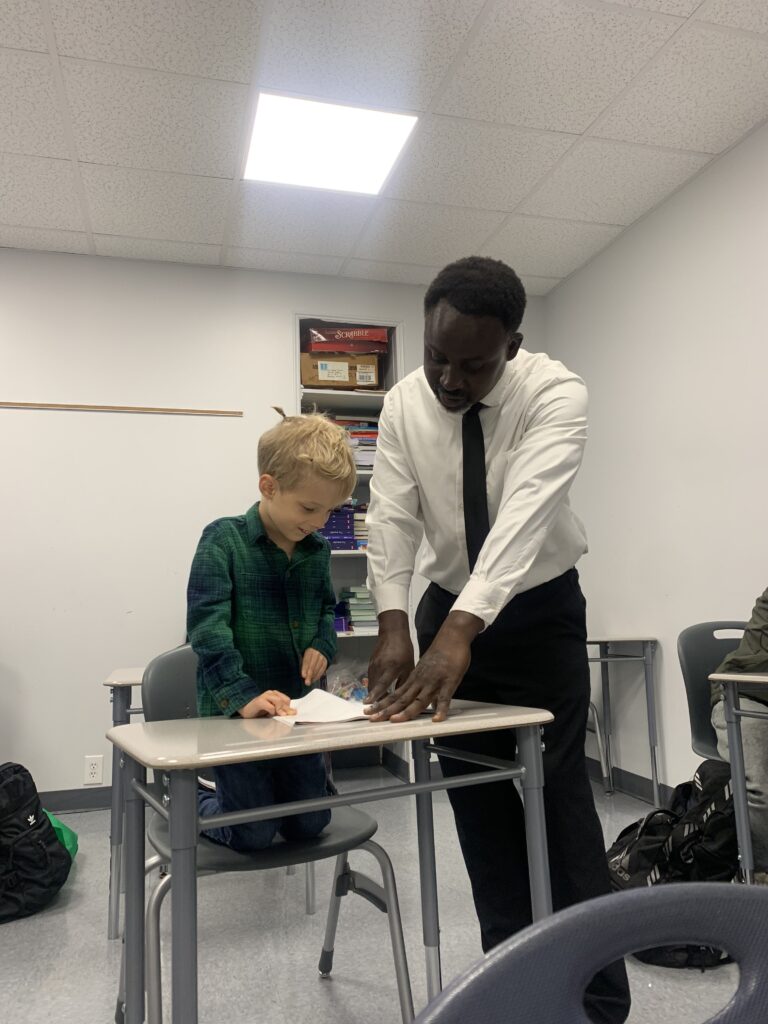

Music
Grades 1–3 Choral singing is emphasized with the exploration of vocal range and the study of good vocal habits. Students sing songs from different cultures while studying dynamics, timbre of instruments, and instrument families. Rhythmic concepts emerge from movement activities, body percussion, and performance on percussive instruments in the classroom while also enjoying the keyboard lab. Children sing and perform throughout the year.
Grades 4–6 A deeper connection to music, built on what the children have already learned, is achieved through a focus on breathing skills, posture, and blending vocally within a group. Concepts include: types of compositional forms (symphony, sonata, concerto, and Baroque suite), syncopation, common meters, mixed and simple meters, major and minor chords, and scales. Children as chorus learn to follow the direction of a conductor and perform throughout the year. Instrumental instruction with keyboards, guitars and bucket drums expand personal interests.
Physical Education
Grades 1–3 These classes participate in physical education four to five times per week. The objectives of positive, cooperative relationships and self-esteem are achieved by group activities and exposure to fitness, movement concepts, and the basics of individual and team sports.
Grades 4–6 With cooperation and the idea of fitness and health in place, students are introduced to more traditional sports and game activities (soccer, basketball, etc.). The end-game goal is less about winning and more about individual effort and team work.
Reading
Grades 1–3 Garden School’s daily reading program is designed for students to become independent readers through the use of a reading series, novels, poetry, plays, and nonfiction selections. Classes are divided into two reading groups in which students master letter cognition, decoding skills, and whole-word recognition, and then progressing to reading out loud fluently and expressively. There are opportunities for independent reading and weekly visits to the library to explore multiple genres and to promote reading for enjoyment.
Science
Grades 1–3 The early years of science at Garden School provide a general introduction to the study of living things, the physical world, and how they interact with each other. Students perform simple experiments that engender wonder—the first ingredient for any scientist or explorer—and become familiar with the most basic of laboratory skills. Topics include the human body, plants and animals, habitats, weather, and fossils.
Grades 4–6 Expanding the tenets and skills they learned in grades 1-3, students set off to explore the world around them using a variety of hands-on methods. In the process, they cultivate a solid foundation that will serve as a basis for science courses in the upper grades. Topics include ecology-survey of organisms and how they interact with their environment; earth science-plate tectonics, paleontology, minerals, and crystals; physical science-matter and energy and their interactions with each other; and astronomy-life cycle of the universe, from the big bang to beyond.
Social Studies
Grades 1–3 Social Studies at Garden School is taught both as an individual lesson and an interdisciplinary subject. Students discuss current events and special holidays and cultural activities as part of knowing about and respecting the larger world of different cultures.
Grades 4–6 In these grades, students become more acquainted and adept with abilities such as map skills, geography skills, reading charts and graphs, and using primary and secondary sources to understand significant historical events. Once they have gained the necessary skills, students study the environment, peoples, and customs of the United States; then, students study American history, government, and economy; finally, students explore world history from prehistoric times through the Cold War. Literature being studied in Language Arts is read in conjunction with topics in Social Studies to supplement and expand on ideas and concepts.
Mandarin Chinese
Grades 1–3 Students develop an appreciation for Chinese culture and language as they advance and build on basic communicative skills previously acquired. They compare and contrast aspects of China with the western world, participate in role-playing, singing, and cooking, using these learning modes to incorporate new vocabulary in everyday conversation. There is also reading and writing of Chinese characters.
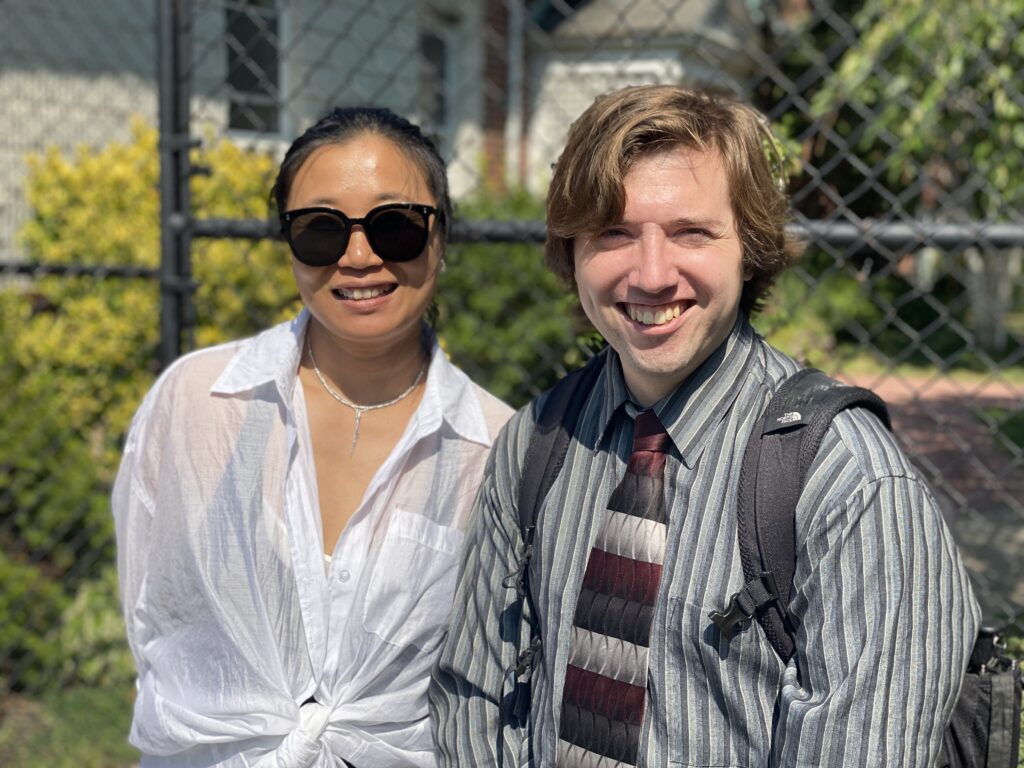

Language Arts
Grades 1–3 Our LA curriculum instills children with the belief that literature provides information, adventure, and enjoyment. For this age range, we emphasize spelling, vocabulary, writing, reading comprehension, and phonemic awareness. Daily activities include printing and cursive handwriting practice and journal writing to stimulate imaginative thinking. Familiarity with basic sentence structure and parts of speech moves toward writing persuasively, drawing conclusions, and making predictions. Book reports and social studies projects that incorporate writing help to coalesce these skills in interesting and rich ways.
Grades 4–6 Throughout the Language Arts program in these grades, students continue to develop their writing skills through the practicing of penmanship, essay development, expressive writing, and the study of English usage and syntax. Moreover, students have many opportunities to advance their research skills during a variety of investigative projects while using available technology. Students also expand their decoding, reading comprehension, and word recognition skills through the reading of poetry, short stories, and novels from the following genres: realistic fiction, non-fiction, and historical. This variety of literature is often read in conjunction with ideas and concepts being studied in Social Studies.
Math
Grades 1–3 Mathematics for grades 1–3 encompasses a variety of procedural and problem solving skills. Students start with number recognition along with basic adding and subtracting. They discuss money value, telling time, and forms of measurement. They explore strategies for breaking down and solving single- and multi-step word problems. They progress toward estimation, fractions, ratios, probability, and multiplication and division. Skills are taught in sequential order, building upon what has previously been learned.
Grades 4–6 Basic operations and concepts from Grades 1–3 are reviewed and developed to include problem solving, logic operations, and abstract reasoning. The pre-algebra sequence also begins in Grades 4–6. Decimals, fractions, and geometry are examined and their interrelationships are explored, both in theory and in their real-world applications. Individual needs and interests are met by using enhanced materials, small group instruction, library resources, and current literature and technology to vary the curriculum.
